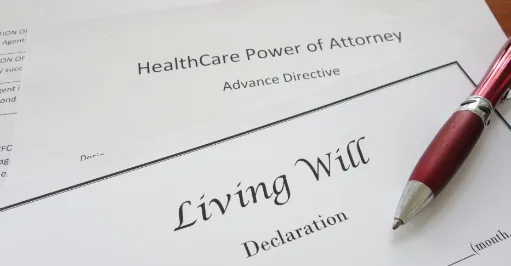As summer comes to its sweet end and we reflect on the barbeques, baseball games, and the beach, it is also an excellent time to consider some our outstanding estate planning issues that may have been left unintended and remain on our mind. Below is our estate plan to do list:
Have your estate planning complete as soon as you can
Set The end of the year as your deadline to finally get this completed. Figure out why you have been procrastinating and conquer your fears. If it is because you aren’t sure whom you want to be the guardian for your minor children or whom you want to be your executor or trustee, or how to divide your estate, your attorney can help you decide. (You can always change your mind later; don’t let these decisions keep you from putting a plan in place now.)
Review and update your existing estate plan
Personal and financial circumstances will change throughout your lifetime, and your plan needs to change with them. Revisions may be appropriate any time there are changes in your family (birth, death, marriage, divorce, remarriage), your finances, tax laws, or if a trustee or executor can no longer serve. Now is a perfect time to do this; if there are changes you want to share with family members, you can do that when they are home for the holidays.
Use your exemption
For the rest of this year, every American can transfer up to $12.06 million free of federal gift, estate, and generation-skipping transfer tax. For a married couple, a combined exemption of $24.12 million comes to a combined exemption. You do not have to die in 2022 to use this exemption; you can use it to make gifts now while you are living. You do not have to give away your assets completely; you can make the transfers in ways that will let you keep control and even have access to gifted assets if you later need them or keep the income your investments are generating. And you do not have to use the total $12.06 million exemption to benefit; even those with less than $1 million should consider some planning to prevent future tax liability. New York State has a three year look back for prior gifts but allows $6.1 million for its total exemption. New your does not currently have a gift tax.
Make tax-free gifts
Annual gifting can be an ideal way to reduce the size of your estate (and potentially save estate taxes) over time. Under current federal law, you can give up to $16,000 to as many people as you wish each year. For example, if you give $16,000 per year to your two children and three grandchildren, you will remove $80,000 from your estate in just one year and $400,000.00 in five years. (You can double these amounts if you are married.) Charitable gifts are unlimited. So are gifts for tuition and medical expenses if you pay them directly to the institution.
Secure/update health care documents
At a minimum, everyone over the age of 18 should have ( a Durable Power of Attorney and Health Care Proxy in place. The health care proxy gives another person legal authority to make health care decisions (including life and death decisions) for you if you are unable to make them for yourself as well as authorizations to allow doctors and medical providers to discuss your medical situation.
Review/update guardians for your minor children
It is likely that the person you name as guardian for your children when they are small will not be the best choice as they age. Also, this person could change his/her mind, move away or even become ill or die. Revisit your choice occasionally, and name more than one in case your first choice cannot serve. Remember, if you haven’t named a guardian who is able and willing to serve and something happens to you, the court will decide who will raise your kids
Review/update beneficiary designations
It is imperative if your beneficiary has died or if you are divorced. If your beneficiary is incapacitated or is a minor, setting up a trust for this person and naming the trust as beneficiary will prevent the court from taking control of the proceeds. Each year you should review your beneficiary designations on your bank accounts, IRA, 401K deferred comp and other retirement accounts, insurance policies, death benefit plans at work and investment accounts, and anywhere else you have listed a beneficiary to make sure they are accurate.
Talk to your children about your estate plan
You do not have to show them bank and financial statements, but you can talk in general terms about what you are planning and why. The more they understand it, the more likely they are to accept it readily – – and that will help to avoid discord after you are gone. You can also talk to them about your values and the opportunities that their inheritance can provide. Even better, show your values by doing – – the holidays are an excellent time for families to do charitable work together. Most importantly, you can talk to them about what to do if you become incapacitated or unable to care for yourself.
Get essential documents for your unmarried children who are over 18
It’s a mild shock when we learn we can’t see our college kids’ grades without their permission, even though we pay the tuition. It can be much worse if they become ill. Unmarried adults (18 and over) need to have a Durable Power of Attorney for Health Care and HIPAA Authorization so you can act on their behalf in a medical emergency. (See #5 above.) And, while you are at it, go ahead and have your attorney prepare a Simple Will and Durable Power of Attorney. While we also hope these documents will not be needed in the unlikely event they are, you will be glad your child has them.
For help getting started on your review and estate planning to do list please don’t hesitate to reach out to us!





